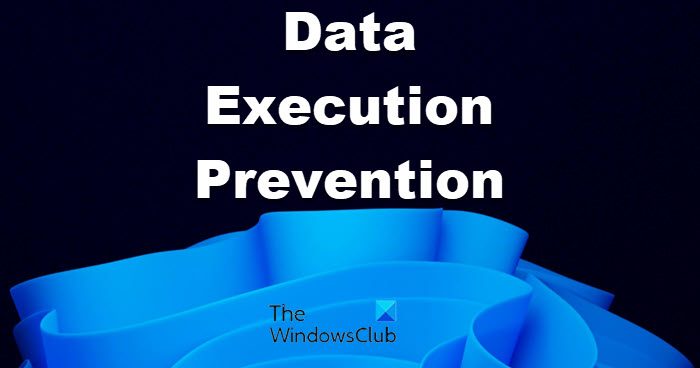What is Data Execution Prevention or DEP
Here are answers to some common questions about Data Execution Prevention (DEP), sourced from Microsoft Help.
Which programs does DEP monitor?
DEP automatically monitors essential Windows programs and services. You can increase your protection by having DEP monitor all programs. To increase DEP protection, see Change Data Execution Prevention settings.
Is it safe to run a program again if DEP has closed it?
Yes, but only if you leave DEP turned on for that program so that Windows can continue to detect attempts to run code from protected memory locations and help prevent attacks.
If DEP keeps closing the same program, is my computer under attack?
If you are using the recommended security settings and your antivirus software did not detect a threat, your computer is probably not under attack. In this case, the program might not run correctly when DEP is turned on. Check for a DEP-compatible version of the program or an update from the software publisher before you change any DEP settings.
How can I prevent DEP from closing a program I trust?
First, see if a DEP-compatible version of the program is available by visiting the software publisher’s website. If the publisher has not released an updated, DEP-compatible version of the program, you can turn off DEP for the program that was closed. You will be able to use the program, but it might be vulnerable to an attack that could spread to your other programs and files. If you choose to turn off DEP for a program, it’s a good idea to check frequently for an updated version of the program and, after you update it, to turn on DEP again. To turn off DEP for a program, see Change Data Execution Prevention settings.
What should I do if DEP is closing a program that’s part of Windows, such as svchost.exe or explorer.exe?
The svchost.exe and explorer.exe programs are parts of the Windows operating system. If DEP closes them or other Windows services, the cause could be smaller programs, such as extensions, that are created by other software publishers and that operate inside Windows. If you have recently installed a program and notice DEP closing Windows-based programs, check with the software publisher to see if there is an updated, DEP-compatible version available, or try uninstalling the program.
If my DEP settings indicate that my computer’s processor does not support hardware-based DEP, am I still protected?
Yes. DEP is a software-based feature of Windows. Some computer processors also provide hardware-based DEP under various names. These processors use hardware technology to prevent programs from running code in protected memory locations. If your processor does not support hardware-based DEP, Windows will use software-based DEP to help protect your computer. If you choose to protect all programs, you can still turn off DEP for individual programs. If you suspect that a program does not run correctly when DEP is turned on, check for a DEP-compatible version of the program or an update from the software publisher before you change any DEP settings. Click to open System. Click Advanced System Settings. If you are prompted for an administrator password or confirmation, type the password or provide confirmation. Under Performance, click Settings. Click the Data Execution Prevention tab, and then click Turn on DEP for all programs and services except those I select. In the coming week, we will also learn about the following:

